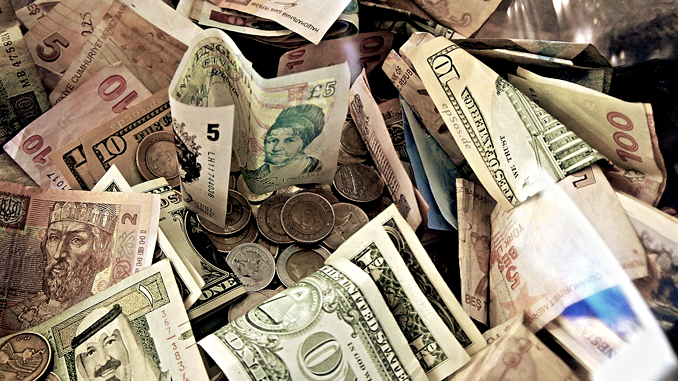
The Inter-American Development Bank is a financial organization designed to promote independence, equality and economic growth in Central and South American nations. It has been funded in part through international contributions since its founding in 1959, and donor countries currently include many of the affected nations, the United States, Japan, Canada, South Korea, and various EU countries (the EU as a joint body donates as well.) It has always had a leader who was from one of the nations being served by the IDB. President Trump seeks to change that.
The IDB is based out of Washington, D.C.. The current leader is due to step down in September, having reached the end of his latest five year term. The President has nominated Mauricio Claver-Carone to the position.
Claver-Carone is a fully qualified nominee. He has been a representative to the IMF and has been an adviser on international affairs for the US Treasury Department. He was a member of Donald Trump’s Presidential transition team, has been a member of the National Security Council under Trump and has been a senior advisor for Central and South American policy for the President. He is a staunch ally of Senator Marco Rubio.
Of Cuban-American origin and firmly opposed to the oppressive government of Cuba, Claver-Carone has been an advocate against traditional leftist governments and would, in theory, be an excellent choice to head the IDB.
Three issues appear ready to scuttle his nomination.
First is his well-known opposition to global Marxists. Some countries which lean firmly toward the standard left are, as expected, in opposition to his rise to the top of the organization because he would likely divert grants and loans away from their countries unless they accepted reforms.
Second is the strength of tradition. While there are no codified rules stating so, the IDB has always been run by someone from Latin America, the IMF is run by a European and the World Bank is run by someone from the United States. This argument was weakened somewhat when the United States declined to press for control of the World Bank in 2016, supporting Bulgarian Kristalina Georgieva rise to the Presidency (she was replaced by an American in 2019.)
Third is the concern about potential corruption. The Trump administration is viewed unfavorably by many countries throughout the world and strong ties to it, such as those of Claver-Carone, have raised concerns because of the many revelations of fraud, corruption and abuse which have arisen over Trump’s four year tenure.
Efforts to contain the novel coronavirus have resulted in billions of dollars being made available for fighting the disease and strengthening local economies ravaged by covid-19. Claver-Carone would have direct oversight of that money and his deep ties to Trump have helped to coalesce opposition.
He may have enough support to take the position anyway. The United States controls 30% of the votes for the organization’s Presidency, and Brazil – whose Jair Bolsonaro is a rare Trump ally – controls another 11%. Columbia, allied with Washington, controls about 3%. The combination puts them just shy of 45%, and the Trump/Bolsonaro coalition expects to bring a number of small countries on board to put them just over the 50% required for confirmation.
Countries which stand in opposition, according to the Los Angeles Times, include Chile, Mexico, the European Union nations, Canada, Argentina and Costa Rica.
With an expectation of falling just short of the votes needed to scuttle Claver-Carone’s nomination, some of the member countries are considering alternative actions.
Per the Buenos Aires Times, key nations are seeking to gather 50% of the voting nations to agree to a delay at the mid-September meeting. If accepted, this would push out the final vote past the time of the U.S. election and would give countries a chance, should Trump fail in his re-election bid, to consider Claver-Carone’s merits with fewer concerns about political pressure. Failing that, a group representing 25% of the vote may skip the meeting entirely, preventing a quorum and thus nullifying a potential vote. This is unlikely unless Trump is widely expected to suffer a comprehensive defeat in November, as few nations will want to risk directly antagonizing the notoriously petty and dictatorial President.
